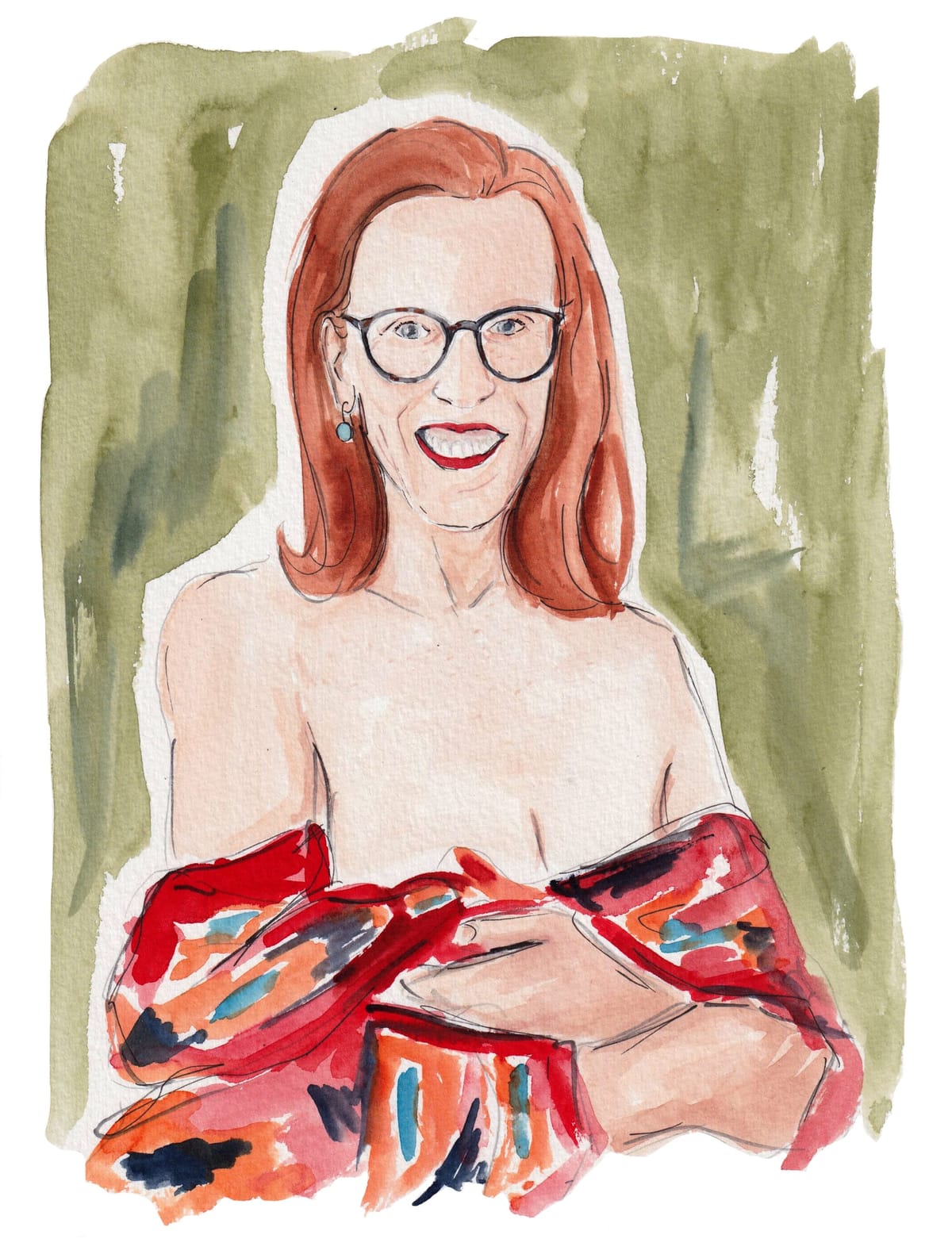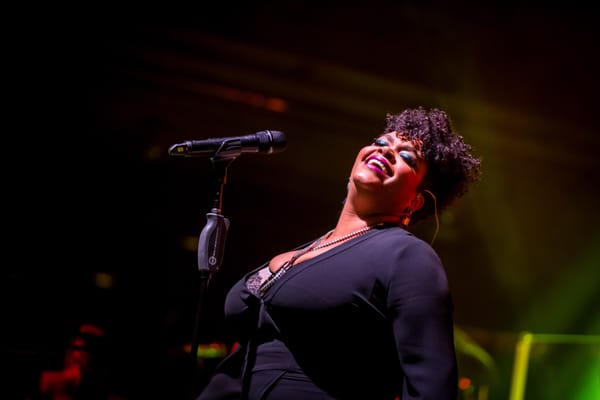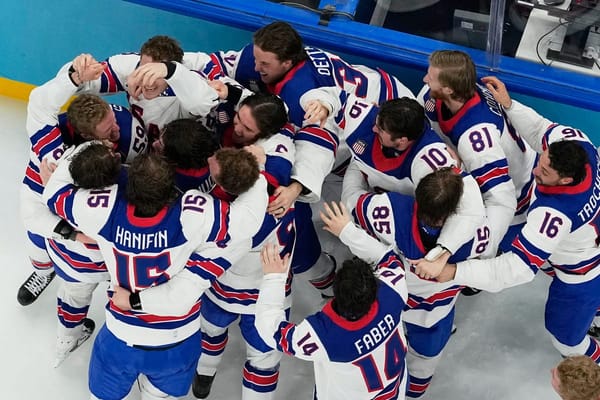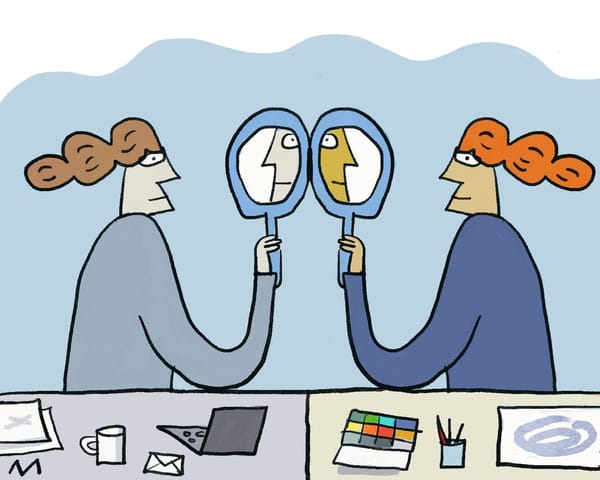‘I Refuse to Be Invisible’—Why the Author Pamela Redmond Decided to Get Naked On Stage at 72
Sometimes, a woman has to do something drastic to get the notice she deserves.

Pamela Redmond, the novelist and digital entrepreneur, believes that in her seven decades on earth, she has had three truly brilliant ideas.
The first was her idea for the baby-naming website Nameberry, which Redmond launched when she was 50 and which, at its peak, garnered 20 million monthly page views.
The second was her idea for the novel “Younger,” which producer Darren Starr [of "Sex and the City" fame] optioned eight years after the book’s initial publication, when Redmond was 60, and which ran on TV Land for seven seasons.
And the third idea? That’s “Old Woman Naked,” Redmond's one-woman show in which she tells the story of her sexual awakening while gradually removing her clothing, piece by piece. By the end of the performance, roughly 60-minutes later, she’s standing on the stage nude, in front of an audience, as vulnerable as a woman of 72 can be.
Yet sitting in the nearly all-women audience, I can attest that rather than the vulnerability I’d have anticipated, Redmond projected quite the opposite: a sense of power, pride, and possibility. Specifically, she showcased the possibility of what an older woman can do when she hits the so-called “invisible” phase.
If you’re over 60, no need for me to explain. Not quite there yet? Surprise, there’s a phenomenon that you’ll start to feel soon enough. In research circles they call it age-related gender diminishment. Informally, it’s known as invisibility syndrome. And it’s the idea that women of a certain age (right around 53, to be precise) seem to disappear from not only public life but also, fade from the workplace and even from view. I’m 62 myself, and on the streets of New York City, I’ve experienced this not-being-seen myself—it’s as if I’m not there and it can be disorienting. Though, as we all know, women my age are very much there, whether society acknowledges us or not.
Of course, along with that feeling of invisibility comes a certain kind of freedom, as Redmond proves. I know that I definitely give less of a damn about what other people think than I did in any prior decade. But would I take my clothes off in front of an audience? That’s a hard no. And so, I wondered what drove Redmond, a former colleague of mine at Glamour magazine during the ‘80s and ‘90s, to do it. In fact, I needed to sit down with her for a deeper dive on all this.
The two of us met in a sunlit New York City brownstone she was borrowing from a friend, and discussed how her third great idea came about—and what it felt like to make herself the opposite of invisible.
Our conversation has been lightly edited and condensed.
How did you come up with the idea to take your clothes off on stage?
It was actually the result of worrying about AI. My tech company, Nameberry, had, like so many other digital platforms, really taken a hit because of AI, and it had lost traffic over the last year. I was sitting there feeling frustrated and angry, and I thought, I want to do something that AI cannot do. Because there is less and less that AI can’t do.
I love writing novels. [Redmond’s second novel, “Older,” was a New York Times best seller.] But I’m not a genius novelist like Sally Rooney, and I’m pretty sure that in five years, AI will be able to write a better novel than I. So, I was trying to think: What can I do that AI can’t?
And that was taking off your clothes?!
Well, not at first, but I immediately knew that whatever I did, it had to be something live and personal. I live in Los Angeles, and I see a hunger, particularly among women over 50, to be with other people, and to have experiences that are in person and very human.
Then the next question was, How will I get someone to listen to my story? And kind of as a joke, I thought, Well, I could take my clothes off! And immediately, I knew it was a great idea—it seemed new and unusual. But I wasn’t sure what I would talk about while I was taking off my clothes. And then it hit me: My body, of course!
And you came up with the title—‘Old Woman Naked’—right away?
Yes! But if it was “Old Woman Naked,” I had to think about what I really wanted to say about getting older, and about my body as I got older.
When I write about something that happened when I was 11, there’s a beginning and an end—it’s a neat little story. But now, getting older, my feelings about my body aren’t these neat little anecdotes. The one thing I did have, though, was a single sentence I’d come up with a few years ago: It takes a long time to get this beautiful.
That’s the last line of the play!
It is, but I didn’t know that at first. Instead, I kept going to other writer friends and saying, This is a great line! You should use it and write a memoir about your sex life! Or, Listen to this line! You should use it for your beauty Substack! Then I realized, I needed to make the line part of my story, and the story needed to be about my body.
To me, the show is really about the invisibility of the older woman. You talk about how no one wants to see an old woman’s body or think about it—how, after you turn 50 or 60, it’s like falling off a cliff. Everyone looks away—there’s that invisibility whether you’re clothed or not.
I refuse to be invisible. I’m a person with a long, complex history—a history that has created this body and this person. Yes, a 20-year-old is beautiful, in ways that everyone can understand. But when you’re 72 or 80, how you look…well, you can’t judge it by the same standard. It’s more about the life you’ve lived. So that was one of my points. This is who I am naked. This is me in my literal and figurative nakedness.
I was talking about it with someone, and they said, Oh, this is about vulnerability! I had almost finished writing when they said that, and I suddenly understood on another, deeper level, that the story was about being naked, being old, being a woman, being an artist…It was about standing on the stage exposing my deepest secrets.
I loved how, in the show, you had a nonchalant way of pulling off a red sock after saying a sentence and throwing it into the audience, then nonchalantly slipping off the jacket of your track suit after another sentence. It wasn’t a sexy strip tease. But as the date of the show approached, did the idea of baring yourself make you nervous?
I have never performed in front of other people ever, never once, not even in high school. That’s what made me nervous. I mean, I’ve given speeches. But this was another type of challenge, to think about, in three dimensions: What would I take off at what point in the story? But in terms of getting naked, I never had any doubts.
In the show, you mention your struggles with weight, and also losing weight with the help of a weight loss drug…
Conversations about weight don’t fit into a neat box. I was working so hard to feel good about myself. And the drugs were there, and so I started taking [them], and it worked, and I lost a lot more weight than I’d ever lost before.
Did that make the final reveal—and the act of being naked on stage—easier?
The final reveal didn’t bother me. Oddly, I was more self-conscious about what I was saying and how I was saying it.
From the perspective of someone in the audience, it felt surprisingly normal. What vibes did you get from the audience?
I felt what you felt—that it was normal. People told me that they were so absorbed by my story—my life as told through the lens of my body—that by the time I took off my clothes, they barely noticed. It wasn’t the centerpiece of the show.
But it was also poignant and beautiful and a little uncomfortable. I teared up. There was so much I related to.
Thank you. That means a lot. I never considered myself to be a physical person, or looked at myself this way. How often do we older women look at our history and wonder how we became who we are and how we feel about our older body?
Was it exhilarating to explore that?
Totally. There are so many losses as you get older. But I also wanted to focus on late-in-life happiness and pleasure and finding happiness as you age. I started a Substack on that subject this summer called The Jubilarian. The word means celebrating a 50th anniversary or beyond. It was so creatively energizing to write something just because I wanted to.
In the show, I was struck to learn that you started a business at 50, divorced at 61, saw your novel first brought to life on TV at 62–and then reprised on Netflix this year at 72, the age you are now. Hearing all that was so empowering, especially since ageism against older women can be so fierce.
That was part of my desire to create my own audience. I’ve done all this stuff, I have all this value, but I’m 72, and the commercial world is not interested in me—not for TV, not for movies, not book publishers. These past few weeks in New York City, I’ve been on a mission to find representations of old women, including browsing the Metropolitan Museum of Art this very afternoon, but I didn’t find any. We’re not photographed, we’re not painted, we’re not sculpted…we’re not standing up there naked! There’s a whole universe of art waiting to be created.
And I know there are a lot of women out there thinking and feeling what I am, so I’m determined to find an audience somehow, by performing this show in Los Angeles, or creating other in-person experiences. I have a lot of big ideas.
"Old Woman Naked," debuted in New York City at The Laurie Beechman Theater, For future dates and performances, check out Redmond’s Substack, The Jubilarian, where Redmond writes about the pleasures of being a woman at midlife and beyond.





